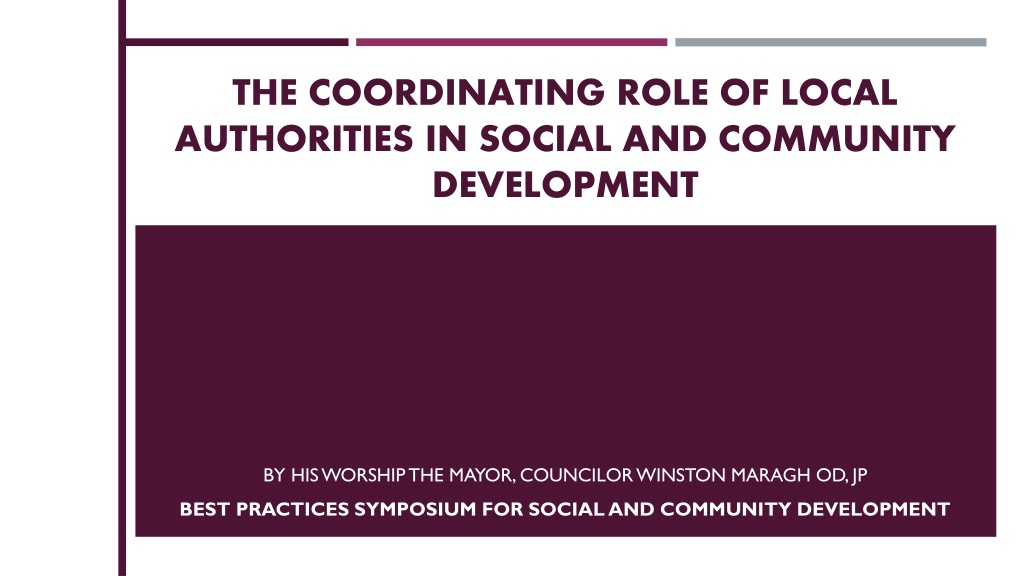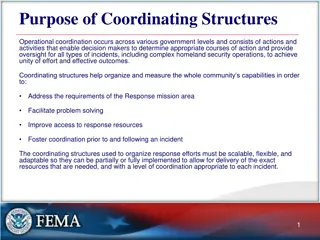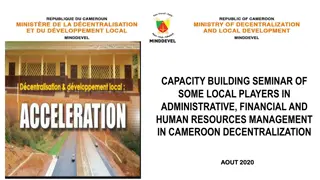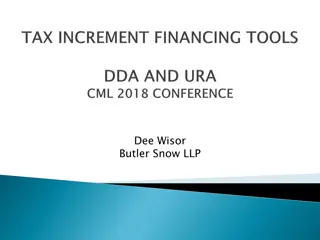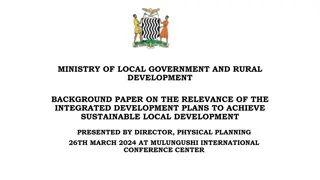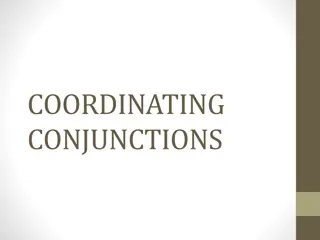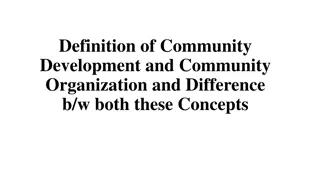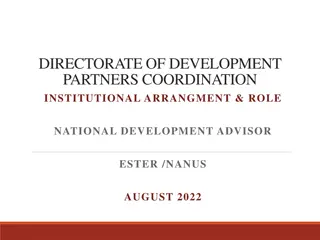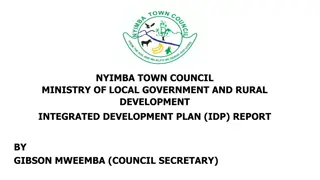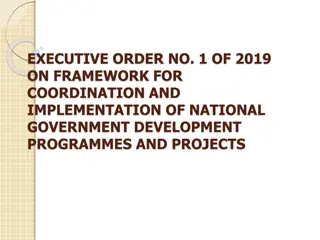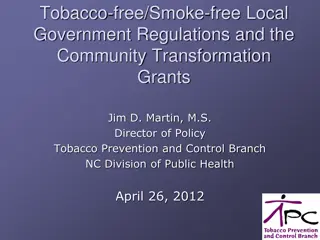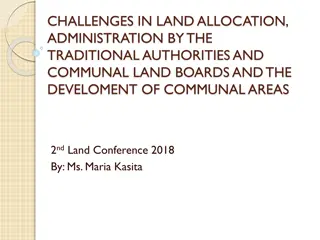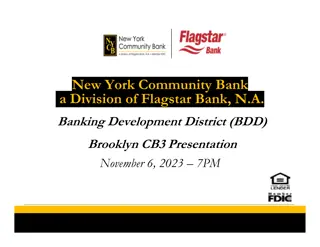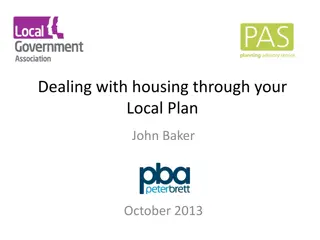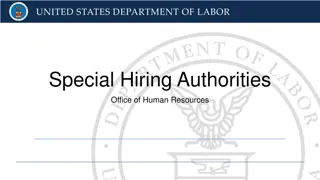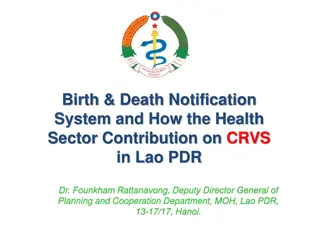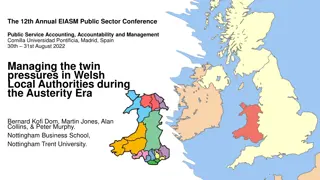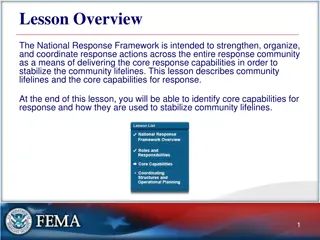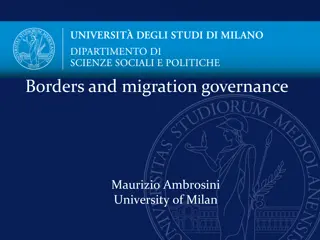The Coordinating Role of Local Authorities in Social and Community Development
Local authorities, such as Municipal Corporations, play a crucial coordinating role in social and community development. They manage local development, prepare Sustainable Development Plans, facilitate collaboration among organizations, and empower citizens in planning. An example is the Clarendon Local Sustainable Development Plan.
- Local Authorities
- Community Development
- Municipal Corporations
- Social Development
- Sustainable Development
Download Presentation

Please find below an Image/Link to download the presentation.
The content on the website is provided AS IS for your information and personal use only. It may not be sold, licensed, or shared on other websites without obtaining consent from the author. Download presentation by click this link. If you encounter any issues during the download, it is possible that the publisher has removed the file from their server.
E N D
Presentation Transcript
THE COORDINATING ROLE OF LOCAL AUTHORITIES IN SOCIAL AND COMMUNITY DEVELOPMENT BY HIS WORSHIP THE MAYOR, COUNCILOR WINSTON MARAGH OD, JP BEST PRACTICES SYMPOSIUM FOR SOCIAL AND COMMUNITY DEVELOPMENT
DEFINING COMMUNITY DEVELOPMENT The United Nations defines community development as "a process where community members come together to take collective action and generate solutions to common problems. Based on another definition from the Cambridge University Conference on African Administration of 1946 community development may be on the initiative of the community or through the use of techniques for arousing and stimulating it. The essential elements of community development include: Active participation of citizens Significant control by people over the developmental process. Vision, goals and objectives based on the quest and aspirations of the people.
THE COORDINATING ROLE OF MUNICIPAL CORPORATIONS IN SOCAIL AND COMMUNITY DEVELOPMENT Municipal Corporations are the Local Authorities within their jurisdiction and are arguably the chief coordinators of social and community development. The coordinator function stems from but are not limited to the following social and community development strategies: Management of local development Preparation of Local Sustainable Development Plans (LSDPs) Hosting of town hall meetings Provision of technical and financial assistance for project implementation
THE MANAGEMENT OF LOCAL DEVELOPMENT One of the specific responsibilities of the Municipal Corporation is to coordinate inter-agency collaboration among non-governmental organizations (NGOs), community-based organizations (CBOs) and government agencies which operate in the parish and are engaged in the delivery of local services or in local development. Actors in social and community development, including the Social Development Commission (SDC) and the Parish Development Committees (PDCs) must report to one of the committees of the Municipal Corporations. In some cases, social and community development activities may require approval from the Corporation.
THE PREPARATION OF LSDPS Another specific responsibility of MCs is to prepare LSDPs. The LSDPs take a bottom up approach to planning. Citizens are empowered to determine a vision for their parish, devise strategies to achieve their vision while addressing the numerous issues and problems that are plaguing the parish.
THE CASE OF THE CLARENDON LOCAL SUSTAINABLE DEVELOPMENT PLAN (CLSDP) The CLSDP utilizes a participative approach to planning in which there is citizen involvement at all levels. Over 20 consultation sessions were held with residents in the preparation of the planning document. As part of the early actions, community groups were given the opportunity to develop their own projects and grant funding was provided to support these initiatives.
THE CASE OF THE CLARENDON LOCAL SUSTAINABLE DEVELOPMENT PLAN (CLSDP) The preparation of the CLSDP was a reflection of the strong partnership and relationship which exist between local government and the citizenry in Clarendon. The Clarendon Parish Development Committee Benevolent Society (CPDCBS) and the SDC were the main partners along with the Municipal Corporation. An officer of the Municipal Corporation, with responsibility for local sustainable development, is based in the office of the CPDCBS.
THE HOSTING OF TOWN HALL MEETINGS Town hall meetings are a way for the Municipal Corporations to meet with the local populace to hear from them on topics of interest or to discuss their developmental issues and challenges. The Clarendon Municipal Corporation, for example, sets a target of four town hall meetings per year. Town hall meetings are usually held across all regions of the parish and not just in one area.
THE HOSTING OF TOWN HALL MEETINGS Town hall meetings are usually coordinated with government agencies and non government organizations so that experts within a particular field/ area are present to address specific issues and challenges.
THE HOSTING OF TOWN HALL MEETINGS - BUDGET CONSULTATION Municipal Corporations are also mandated to have consultations on their annual budgets with the local population. Special town hall meetings are usually held with the public where feedback and recommendations are provided by the citizens on the draft budgets. All feedback are taken into account before the budget is approved.
THE PROVISION OF FINANCIAL AND TECHNICAL ASSISTANCE CBO s may seek financial and/or technical assistance from the Municipal Corporations to implement projects. In Clarendon: The CPDCBS is very active in project writing and may seek technical assistance of partner with the Municipal Corporation to support project implementation. CBO s may write to the municipal Corporation requesting a waiver on certain approval fees to undertake social and community based development activities. CBO s periodically seek budgetary support from the Municipal Corporation to implement projects. CBO s periodically approach the Municipal Corporation to provide technical assistance in project writing.
